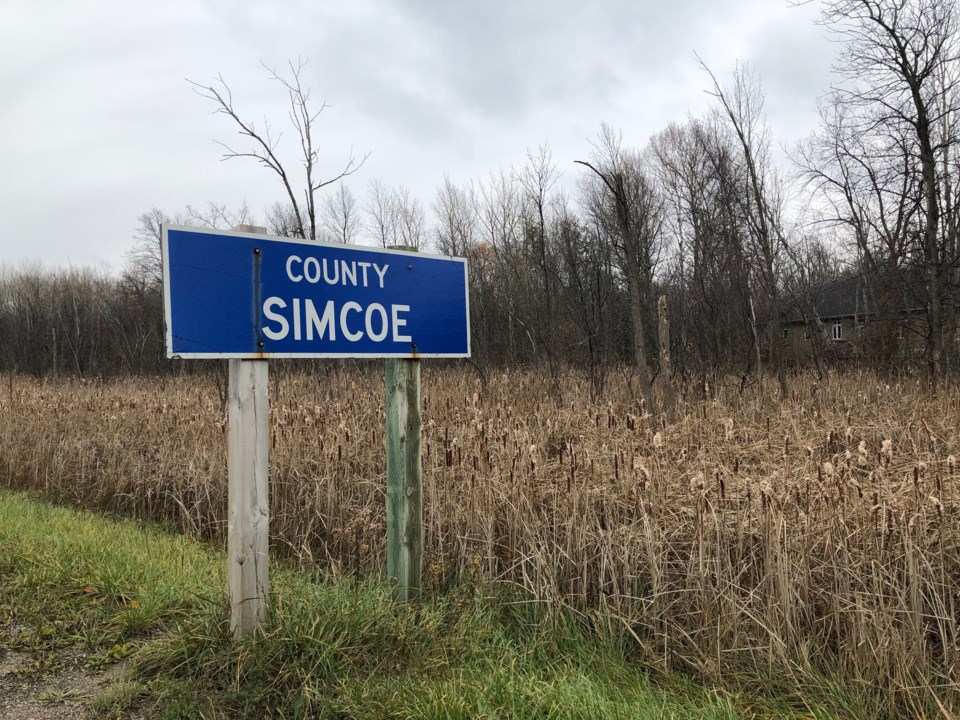Simcoe County residents could see an increase to their tax levy of between 1.5 and 2.5 per cent, according to a report to councillors this week outlining the 2025 high-level draft budget assumptions.
Trevor Wilcox, the county’s general manager of corporate performance, said the report included what he called the “usual assumptions for different components of funding” that the county will be putting in place, as well as having outlined various other expenses and programs the county funds.
The 2025 proposed draft budget assumptions and directions include a suggested tax levy increase of two per cent, noted the report, in order to support the asset management plan and 1.5 to 2.5 per cent to support existing service levels and capital contribution.
A total four per cent increase will be modelled to demonstrate the impact of the middle of the range, explained the report, adding based on five-year historical trends the annual assessment growth is estimated at two per cent.
Supplementary taxation net of write-offs is estimated at $2.3 million, based on a five-year historical trend, and for this upcoming budget year, certain expense types have been updated to reflect current inflationary pressures, pointed out the report, while all other items are using a general inflation rate of two per cent based on the Bank of Canada target consumer price index approximate rate of two per cent.
“There is some significant push in some areas where we have seen caseloads, as an example, increase. We are seeing demand for our services,” Wilcox said during Tuesday's committee of the whole meeting. “As you know, the type of services we provide are most in demand when times are tough.
"I understand that it’s a tough economic time, but that’s also driving the need for our services, especially in the social services area and that will be reflected in the budget as well," he added.
Wilcox said he's recommending to draft the budget with a two per cent increase related to the capital side for the asset management planning the county has been putting in place.
“We’ve put an estimate in for that plan that will be needed this year when we draft the plan that will go to the province, and then a two per cent increase in operating expenses,” he said.
In terms of operating expenses, Wilcox reminded councillors that recent settlements related to increases in benefits and salaries have been included in the budget and are part of what is driving the cost increase there.
“As another example, we have an index called the non-residential building construction index, and that’s reflective of construction costs and how those increase," he said. "From 2021 to 2023, that rose an average of 16 per cent. The funding has not kept pace with inflationary pressures, so that puts pressure on needing an operating balance big enough to contribute to capital and to things we are purchasing.
“I am proposing to draft the budget with those increases, but also show what the budget would be if there was a half a per cent higher or lower (to) let it flow through so it would show different levels of operating balance we could use," Wilcox added. "(We) will have the particulars in each area and where the pressures are coming through.”
“It’s great to have those other looks at what the variance would be," said Collingwood Deputy Mayor Tim Fryer. "I appreciate the fact you’re going to give us that additional information."
"Our team is projecting, right now, a modest deficit," Wilcox said. "(That's) the first time that I have done that, I think, since I have been here. It is very close. It's a challenging year. We are still working on trying to close that if need be.
"As you know, we cannot run a deficit," he added. "We would have to figure out how we are going to close that using reserve dollars. I am not really concerned at the magnitude we are seeing. I don't see that being an issue at this point in time, but it is about a $300,000 deficit that I am projecting right now."
Final approval of the 2025 budget is expected to take place in November.



